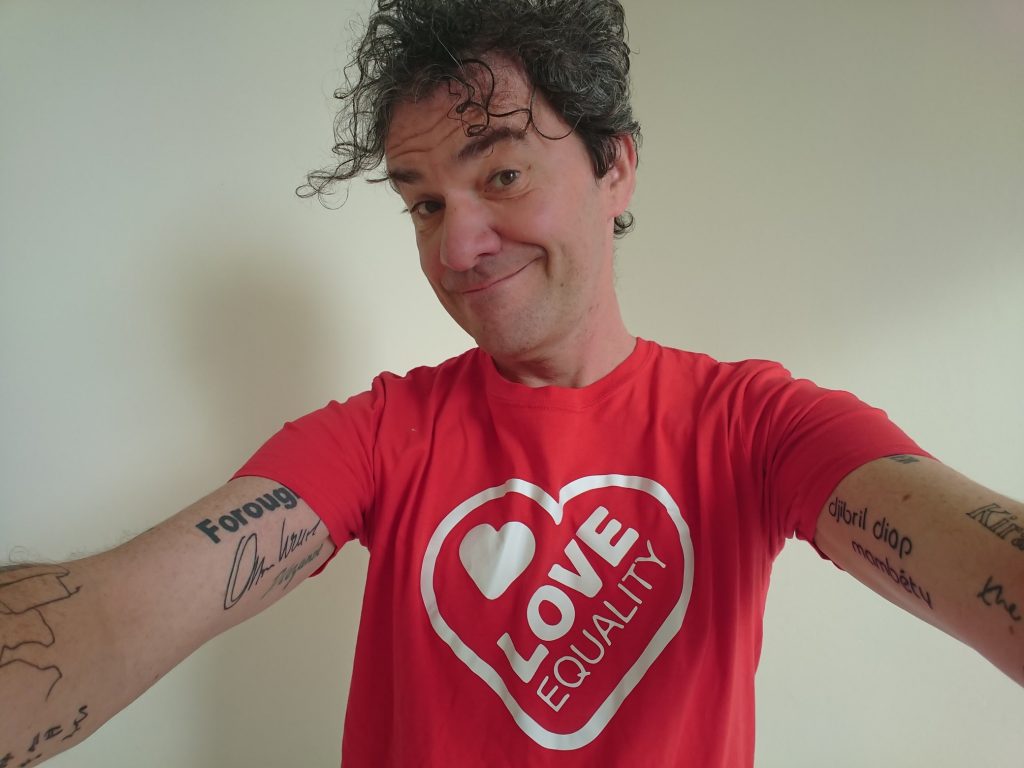Entertainment
In ‘Women Make Film,’ a 14 hr epic of an overlooked history

Cousins’ epic film, which has been playing throughout the Toronto International Film Festival, is not a chronological history but a personal, roving exploration of a cinema terrain often forgotten, overlooked or underappreciated. (File Photo: markcousinsfilm/Twitter)
TORONTO — The length of Mark Cousins’ 14-hour documentary “Women Make Film” is itself a statement. The work of female filmmakers throughout cinema history is too rich and too vast for anything less.
Cousins’ epic film, which has been playing throughout the Toronto International Film Festival, is not a chronological history but a personal, roving exploration of a cinema terrain often forgotten, overlooked or underappreciated. It digs deeply into the artistry of some 183 female directors from throughout film history and around the globe. Its abiding tenor is one of awe, reverence and celebration.
“This is a film school of sorts in which all the teachers are women: an academy of Venus,” introduces Tilda Swinton, a narrator and producer.
Cousins, the Scotland-based documentarian and film critic, grants “Women Make Film” could have been a more standard 90-minute movie, but that would have done its subjects a disservice.
“If we say there’s a forgotten history or a sequestered history, the physical size of the piece needs to speak for itself,” Cousins, outfitted in a “Masculine Feminine” T-shirt, said in an interview “It’s not like there have been little crumbs dropped back through film history. There are massive histories that have been forgotten.”
Along with Swinton, “Women Make Film” is narrated by Jane Fonda, Adjoa Andoh, Thandie Newton, Kerry Fox, Sharmila Tagore and Debra Winger. Swinton opens the documentary with the matter-of-fact declaration: “Most films have been directed by men. Most of the recognized so-called movie classics were directed by men. But for 13 decades and on all six filmmaking continents, thousands of women have been directing films, too. Some of the best films.”
“Women Make Film” charts, instead, “a new road movie through cinema” that aspires to upend much of the traditional, male-dominated understanding of film history.
It passionately argues that “Lynchian” — the surreal characteristics of David Lynch’s films — ought to, perhaps instead, be first associated with the Ukrainian filmmaker Kira Muratova, whose movies were censored in the Soviet Union. It exalts Mia Hansen-Love’s floating camera in “Things to Come” (2016), the sense of home in Lynne Ramsay’s “Ratcatcher” (1999) and the staging of Joanna Hogg in “Unrelated” (2007). The memorable tracking shot of Chantal Akerman’s 1993 documentary “From the East” — a slow pass across the faces of people awaiting transportation in Eastern Europe — Cousins’ film maintains, is on par with anything Orson Welles ever did.
“Forget gender for a moment. The playing field is not level. There’s something wrong with our film culture if we don’t talk about that shot,” says Cousins.
Cousins’ equally ambitions 900-minute “The Story of Film: An Odyssey” (2012) similarly assembled a loving and singular journey through film that bubbles with wonder. “Women Make Film,” Cousins estimates, took four years to make, all the while without funding. But the more proper timeline, he says, spans a lifetime of movie watching.
In those four years, attention and frustration has only grown for the wide disparities between women and men in the film industry, particularly behind the camera. Research studies have found that last year, just 8% of the directors for the top 250 films at the U.S.-Canada box office were directed by women, a three percentage point decline from the year before.
What Cousins wants to contribute to the ongoing dialogue is a closer and more informed study — and sheer enjoyment — of the work.
“Yes, man — or woman — the barricades. Yes, get angry. But if you have no sense of where it’s coming from, there’s a danger of making arguments that aren’t actually true,” says Cousins. “I just worry that the debate is under-imagined. If we say the film industry hasn’t let women make films — which is broadly true — there’s a risk that we re-sequester these women. We write them out of history for a second time.”
“Women Make Film” was quickly acquired in Toronto. Cohen Media will release it in theatres, with Criterion Collection set to stream it and television rights going to Turner Classic Movies. Kanopy took rights to show it in schools and public libraries. TCM’s vice-president of programming, Charles Tabesh, credited “Women Make Film” with illuminating “masterpieces that need to be seen by anyone who wants to understand the art of filmmaking.”
“Cinema is even better than we think,” Cousins says. “This medium that we love, it’s even richer than we know.”





















